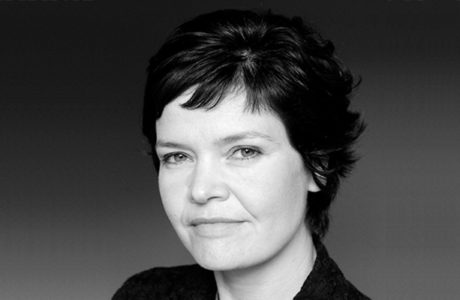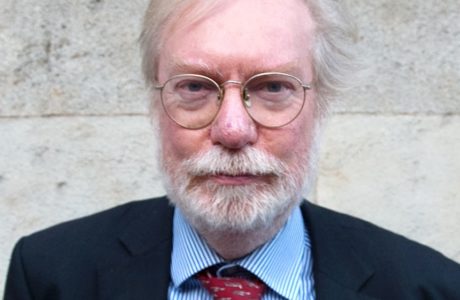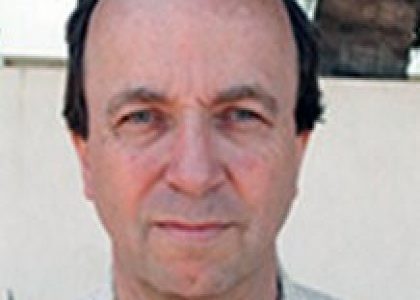Institution: University of Oxford
W
U
- University of Delaware
- United Nations
- United Cities and Local Governments
- University of Pennsylvania
- Università di Macerata
- University of Oxford
- United Nations Development Programme
- UN Statistics Division
- UNESCO Information for All Programme
- United Nations Environment Programme
- University of Queensland
- Universidade Estadual do Rio de Janeiro (Federal Rural University of Rio de Janeiro)
- University of the Philippines
- University of California - Irvine
- University of Victoria
- UN-Habitat
- University of Cape Town
- University of Exeter
- United Nations Economic Commission for Africa
- UNICEF
- Università degli Studi di Siena
- Università degli Studi di Napoli Federico II
- Université de Sousse
- United Technologies Research Center
- Università degli Studi di Tuscia
- University of Jordan
- University of California - San Francisco
- UNESCO World Water Assessment Programme (WWAP)
- University of Wollongong
- UNU-WIDER
- Unilever
- University of Gothenburg
- UNESCO
- United Nations Economic Commission for Europe
- UNESCO Global Network of Facilitators
- University of South Africa
- University of Antwerp
- University of Music Franz Liszt Weimar
- UNU-CRIS
I
- International Union for the Conservation of Nature
- International Monetary Fund
- International Institute for Applied Systems Analysis
- Institute for Sustainable Development and International Relations
- Indian Institute for Human Settlements
- International Telecommunication Union
- International Ocean Institute
- India Federation of Self Employed Women's Association
- International Civil Society Action Network
- International Institute for Environmental Development
- ICLEI - Local Governments for Sustainability
- International Labour Organization
- IHE Delft
- International Fertilizer Association
- Islamic Development Bank Institute (IsDBI)
- Istanbul International Center for Private Sector in Development (IICPSD)
- International Labour Organization (ILO)
- International Social Security Association
S
A
- Ain Shams University
- American University
- Athens University of Economics and Business
- African Center for Cities
- Association of Caribbean Energy Specialists
- All India Institutes of Medical Sciences
- Australian Resilience Centre
- Alliance for Global Water Adaptation
- Academy of Korean Studies
- Ahmedabad University
M
H
E
F
- Federal Government of Ghana
- Fundação Getulio Vargas
- Facultad Latinoamericana de Ciencias Sociales
- Federal Government of Chile
- Federal Government of the United States of America
- Foundation for the Global Compact
- FAS - Fundação Amazonas Sustentável (Amazonas Sustainable Foundation)
- Former President of Colombia
- Former Prime Minister of Norway
- Former UN Secretary-General
- French High Council for the Financing of Social Protection
C
N
- New School
- Natural Resource Governance Institute
- National Disaster Management Authority (India)
- National Research University Higher School of Economics
- National Wildlife Federation
- New York University
- Northumbria University
- National Autonomous University of Mexico
- National Institute of Archaeology and Heritage Sciences of Morocco
G
K
D
P
B

Sabina Alkire
Sabina Alkire directs the Oxford Poverty and Human Development Initiative (OPHI). She is the Associate Professor of Development Studies in the Oxford Department of International Development at the University of Oxford. From 2015–16, Sabina was Oliver T Carr Professor of International Affairs and Professor of Economics at George Washington University. Previously, she worked at the Global Equity Initiative at Harvard University, the Human Security Commission, and the World Bank’s Poverty and Culture Learning and Research Initiative.
Together with Professor James Foster, Sabina developed the Alkire-Foster (AF) method for measuring multidimensional poverty, a flexible technique that can incorporate different dimensions, or aspects of poverty, to create measures tailored to each context. With colleagues at OPHI this has been applied and implemented empirically to produce a Multidimensional Poverty Index (MPI). The MPI offers a tool to identify who is poor by considering the range of deprivations they suffer. It is used to report a headline figure of poverty (the MPI), which can be unpacked to provide a detailed information platform for policy design showing how people are poor nationally, and how they are poor by areas, groups, and by each indicator.

Carl Frey
Carl Frey is Oxford Martin Citi Fellow at Oxford University. Frey is also an Economics Associate of Nuffield College and Senior Fellow at the Institute for New Economic Thinking.
Frey has served as an advisor and consultant to international organizations, think tanks, government, and business, including the G20, the OECD, the European Commission, the United Nations, and several Fortune 500 companies.

Kate Raworth
Kate Raworth is a senior visiting research associate at the Environmental Change Institute, University of Oxford. She is also the author of Doughnut Economics. Read more about her work here.

Paul Collier
Sir Paul Collier is Professor of Economics and Public Policy at the Blavatnik School of Government and a Professorial Fellow of St Antony’s College. From 1998-2003 he took a five-year Public Service leave during which he was Director of the Research Development Department of the World Bank. He is currently a Professeur invit at Sciences Po and a Director of the International Growth Centre. He has written for the New York Times, the Financial Times, the Wall Street Journal, and the Washington Post. His research covers the causes and consequences of civil war; the effects of aid and the problems of democracy in low-income and natural resources rich societies; urbanization in low-income countries; private investment in African infrastructure and changing organizational cultures. Recent books include The Bottom Billion (Oxford University Press, 2007) which in 2008 won the Lionel Gelber, Arthur Ross and Corine prizes and in May 2009 was the joint winner of the Estoril Global Issues Distinguished Book prize; Wars, Guns and Votes: Democracy in Dangerous Places (Vintage Books, 2009); and The Plundered Planet: How to reconcile prosperity with nature (Oxford University Press, 2010). His latest book is Exodus: How migration is changing our world (Oxford University Press, 2013) In 2014, Paul received a knighthood for services to promoting research and policy change in Africa.
